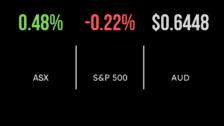Annual renewals bill passes both houses of Parliament
The Financial Sector Reform Bill (Hayne Royal Commission Response No. 2) Bill finally passed both houses of Parliament on Friday, as the professional standards expected of the financial advice industry continue to increase. The bill includes three significant changes for the industry, each aimed at protecting clients against the “fees for no service” debacle that ultimately dominated the Royal Commission hearings.
The bill introduces increased disclosure requirements for the financial advice industry, beginning with the move to annual ongoing fee renewals, while introducing the requirement for financial advisers to disclose their “lack of independence” in their financial services guide (FSG) should they receive any commission from a product provider that isn’t rebated in full.
Commenting on the legislation, Minister for Superannuation, Financial Services and the Digital Economy, Jane Hume, said the changes were “an important step in restoring trust and confidence in Australia’s financial system.” Under the change, “clients of financial advisers will receive an annual, forward-looking summary of fees and corresponding services, in addition to existing disclosures.” The legislation will also prohibit the deduction of ongoing advice fees from My Super products.
As always, the devil is in the detail, and advisers will need to ensure their disclosure documents ranging from fee disclosure statements, ongoing fee renewals and FSGs are updated as a priority in the coming months.
Lack of independence disclosure
According to the legislation, entities providing financial services to retail clients will be required to cease using the words ‘independent’, ‘unbiased’ and ‘impartial’ within their marketing and disclosure documents unless they are able to meet the following requirements:
The person (or anyone providing a financial service on their behalf or anyone on whose behalf they are providing a financial service) does not receive:
- A commission (other than a commission that is rebated in full);
- Remuneration calculated based on the volume of business placed by the person with the issuer of the product; or
- Other gifts or benefits from the product issuers that may reasonably be expected to influence the person.
And the person is not directly or indirectly restricted in relation to the financial products in respect of which they provide.
And the person does not have a conflict of interest arising from a connection with an issuer of financial products that could reasonably be expected to influence the person in carrying on the business or providing the service.
ASIC has been tasked with determining the appropriate structure of the statement, but according to the Explanatory Memorandum the new FSG must “set out that the providing entity is not independent, impartial or unbiased (which are restricted words or expressions within the meaning of section 923A(5)) in relation to the provision of personal advice, and explains the reasons why.”
Annual renewal agreement
The second major change is the introduction of an annual renewal or “opt-in”-style agreement, albeit with some simplified terms compared to the current situation. According to the explanatory memorandum, all financial services providers that receive fees under an ongoing fee arrangement will be required to:
- Provide clients with a fee disclosure statement during the same period each year which:
- includes the fees that will be charged in the following 12 month period;
- outlines the services that the client is entitled to receive in the following 12 month period;
- seeks annual renewal from clients for all ongoing fee arrangements; and
- obtain written consent before fees under an ongoing fee arrangement can be deducted from a client’s account.
For those currently utilising annual fee agreements, rather than ongoing fee agreements, the new legislation may actually be more flexible, allowing advisers additional before they are required to switch off any fees they have been receiving. According to the legislation, a 120-day “renewal period” for the client to sign the annual agreement will begin on the anniversary date, regardless of when the renewal is handed to the client. If a client has not signed the renewal within a further 30 days – 150 in total – the client fees must be switched off.










